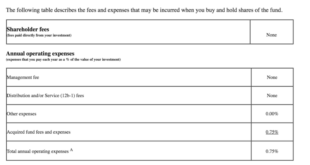How Brokers Find Rates: The Secrets Behind Competitive Deals. Finding competitive rates is at the heart of what brokers do, whether in mortgage lending, insurance, or other financial services. But how exactly do they achieve this? Understanding the process helps consumers make informed decisions and ensures transparency in broker-client relationships. In this article, we delve into how brokers find rates, offering tips, answering common questions, and exploring strategies that lead to the best deals.
What Does a Broker Do?
A broker acts as an intermediary between clients and service providers. Their role includes:
- Understanding Client Needs: Gathering detailed information to identify requirements.
- Market Research: Analyzing the market to find competitive offerings.
- Negotiating with Providers: Leveraging relationships and industry knowledge to secure favorable rates.
Brokers typically specialize in a niche—such as mortgages, insurance, or investments—and their expertise allows them to navigate complex markets efficiently.
How Brokers Find Rates: The Key Strategies
1. Building Relationships with Providers
Brokers establish partnerships with financial institutions, lenders, and service providers. These connections often grant them access to special rates or promotional deals unavailable to the general public.
2. Using Advanced Technology
Modern brokers rely on technology to compare rates quickly. Tools like:
- Rate Aggregators: Consolidate data from multiple sources.
- Proprietary Software: Offers tailored results based on client profiles.
3. Staying Informed About Market Trends
Brokers monitor industry trends, including interest rate changes, economic shifts, and regulatory updates, to stay ahead.
4. Leverage Buying Power
Brokers with large client bases can often negotiate bulk discounts or preferential terms, passing savings directly to their clients.
5. Analyzing Customer Profiles
Tailoring searches based on credit scores, income levels, and preferences ensures the rates they find align with the client’s financial situation.
Benefits of Using a Broker to Find Rates
Hiring a broker offers several advantages:
- Time-Saving: No need to research rates yourself.
- Expert Guidance: Insight into market nuances.
- Access to Exclusive Deals: Brokers often secure lower rates than clients can find independently.
Challenges Brokers Face When Finding Rates
1. Market Volatility
Fluctuating interest rates can make finding stable deals challenging.
2. Client-Specific Constraints
Low credit scores or high debt-to-income ratios limit the range of available rates.
3. Regulatory Hurdles
Compliance with laws like Truth in Lending Act (TILA) adds complexity to the broker’s role.
10 Tips for Finding the Best Broker Rates
- Choose a Specialist Broker: Pick one experienced in your financial area, such as mortgages or auto loans.
- Check Credentials: Ensure the broker is licensed and has a good reputation.
- Ask About Fees: Understand how the broker is compensated to avoid hidden costs.
- Review Testimonials: Look for reviews from past clients to gauge reliability.
- Stay Informed: Familiarize yourself with market rates to assess the broker’s performance.
- Communicate Your Needs Clearly: Provide detailed information for tailored recommendations.
- Evaluate Multiple Options: Compare rates from different brokers for the best outcome.
- Ask About Relationships: Inquire about the broker’s affiliations with providers.
- Opt for a Transparent Broker: Work with someone who explains their process openly.
- Focus on Value, Not Just Rates: Consider the overall benefits, such as customer service and flexibility.
10 FAQs About How Brokers Find Rates
- How do brokers access special rates?
Brokers often have relationships with providers that grant them exclusive deals. - Can brokers guarantee the lowest rate?
While they aim to find competitive rates, market conditions and client profiles affect availability. - How much do brokers charge?
Fees vary; some are commission-based, while others charge flat rates. - Are brokers better than direct providers?
Brokers offer a broader market view, while direct providers focus on their products. - Do brokers only work with certain providers?
Many brokers have a network of preferred partners but are not limited to them. - Is my credit score important?
Yes, it plays a significant role in determining the rates brokers can find. - Can brokers help with refinancing?
Absolutely! Brokers often assist clients in finding better terms for refinancing loans. - What industries rely on brokers the most?
Common areas include mortgages, insurance, investments, and loans. - Do brokers negotiate on my behalf?
Yes, negotiation is a core part of their role. - How long does it take for brokers to find rates?
Depending on complexity, it can range from hours to a few days.
Conclusion
Brokers are invaluable allies in securing competitive rates, whether for a mortgage, insurance, or other financial needs. Their ability to navigate complex markets, leverage industry connections, and negotiate terms ensures clients receive optimal solutions tailored to their needs.
By understanding how brokers find rates, consumers can collaborate effectively and maximize the benefits of these professional services. When choosing a broker, prioritize transparency, expertise, and a commitment to your financial success. Partnering with the right broker could be your key to unlocking the best deals in the market.
 mortgage.kbk.news
mortgage.kbk.news
